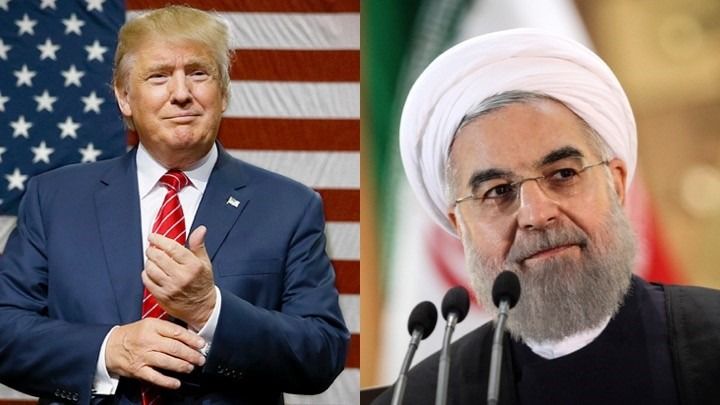Calming the Persian Gulf: The experts on resolving the US-Iran standoff
By John Mecklin, July 31, 2019

From left, President of the United States Donald Trump and President of the Islamic Republic of Iran Hassan Rouhani
The US decision to withdraw from the Iran nuclear deal (known officially as the Joint Comprehensive Plan of Action, or JCPOA) has created an increasingly tense situation throughout the Middle East. After withdrawing from the JCPOA, the United States has embarked on a “maximum pressure” campaign that includes economic sanctions aimed at restricting trade with Iran by US firms and by companies of other signatories to the JCPOA. This campaign has negatively affected the Iranian economy and been met by Iranian countermeasures, including moves to increase uranium enrichment above levels dictated by the JCPOA, the downing of an American drone, and the seizure of a British oil tanker, apparently in response to the seizure of an Iranian tanker suspected of violating European Union sanctions.
As the situation now stands, the United States is demanding that Iran enter new negotiations on its nuclear program, its ballistic missile program, and a host of activities that US officials contend undermine peace across the Middle East. Iran has declined to negotiate, claiming that the United States violated the nuclear agreement, even though Iran was in compliance with its terms. Representatives of Iran and the five other remaining parties to the JCPOA—Britain, France, Germany, Russia, and China—met in Vienna on Sunday in an attempt to keep the deal alive.
I have asked top experts from a variety of countries and with a variety of points of view to offer their best and most realistic advice on how the US-Iran impasse might be broken, so a war that neither the United States nor Iran seems eager to begin can be averted. That advice follows.
Three steps toward resolving Iran’s nuclear crisis
Restarting negotiations with Iran
US-Iran: avoiding military confrontation
Steps back from the brink at the Strait of Hormuz
Making the best of Europe’s dwindling options
Share: [addthis tool="addthis_inline_share_toolbox"]














Thank you very much for this concise and penetrating discussion, which I think represents the full range of views on this complex subject. A complicating factor, I believe, is that Iran’s leaders can plainly see how a rogue nuclear power (North Korea) has been treated by the current US administration. That, I think, is a clear inducement to them to proceed to build and test their own device.
Where is Israel in this conflict with Iran? Can we expect Iran to remain without nuclear weapons when Israel has refused to even discuss giving up its nuclear weapons? Israel is the elephant in the room going largely unnoticed while the U.S. acts as Israel’s proxy pressuring Iran with sanctions which could be interpreted as acts of war. There will be no peace in the Middle East until the U.S. demands that Israel quits its (illegal) provocations against Iran, within Syria, and its shameful treatment of the Palestinians.